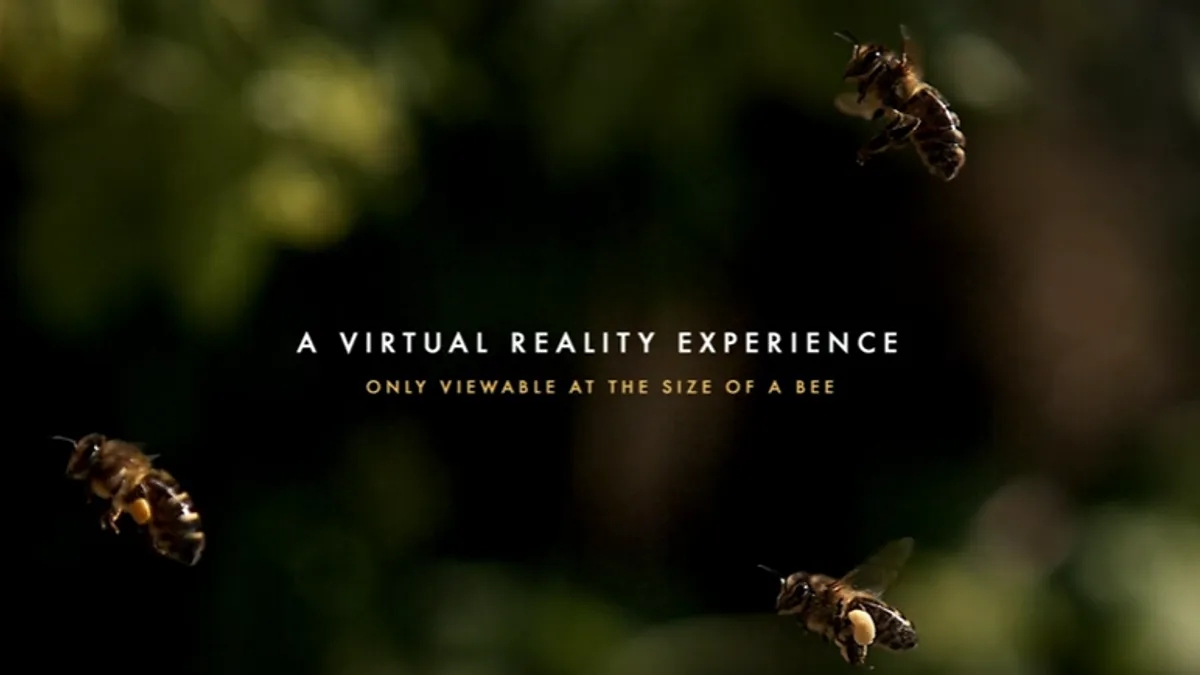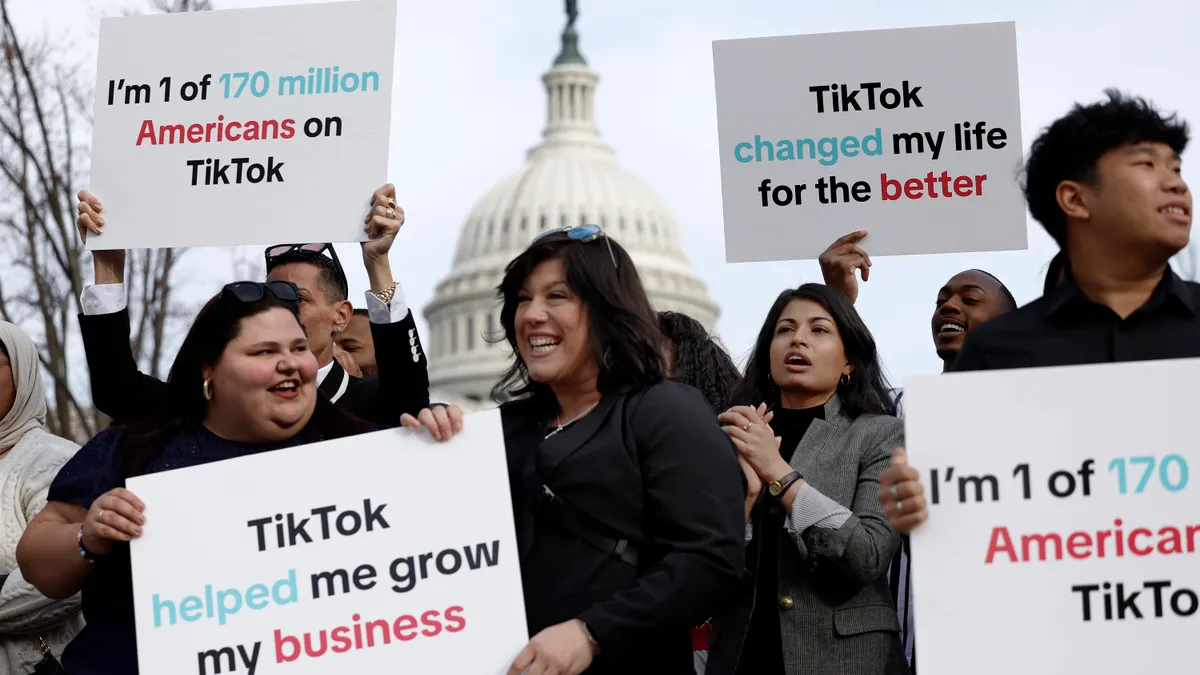Dive Brief:
- Ice cream brand Häagen-Dazs is turning to virtual reality for the latest installment of its eight-year-old brand storytelling series around the plight of the honeybee, according to reporting from Adweek.
- A trailer for the campaign debuted last week at the Brand Storytelling conference as part of the Sundance Film Festival, and the final version — which will be between three and five minutes — will put viewers into the perspective of the bee. The effort is being created in conjunction with Reach Agency and is expected to be released this summer.
- If brands tdon’t have a compelling and engaging story then they are “basically a commodity,” Alex Placzek, U.S. director of marketing for Häagen-Dazs said during a panel discussion at the festival. He added that VR technology has made the ice cream brand excited about learning how to tell stories with more impact.
Dive Insight:
Virtual reality remains a cutting-edge marketing tool, but most industry experts see VR’s enhanced storytelling capabilities one of the strengths of the technology. For brands, immersive stories can translate to results. Research from YuMe and Nielsen found that VR drives emotionally engaging brand experiences with VR receiving 17% higher emotional reaction and 16% longer engagement than flat 360-degree video, and 27% higher reaction and 34% longer engagement than 2D video.
With such results in mind, a number of brands have already introduced VR efforts, with some taking VR in novel directions, such as MetLife’s VR customer service platform for its India market.
There are some concerns about the tech, however. Recent reporting from Business Insider pointed to some areas where VR seems to be coming up short, including the lack of a breakthrough game or killer app and a prohibitive cost for high-end tethered VR systems like Facebook’s Oculus Rift and the HTC Vive. Even the lower end headsets that tend to use smartphones for display such as Samsung Gear and Google Daydream or are connected to consoles like Sony’s PlayStation VR haven’t completely taken off on the consumer side.
Overall VR tech is far too early in its infancy for any solid predictions about its eventual consumer impact, but it does remain an area that marketers should keep an eye on for both an enhanced storytelling tool and to understand how audiences are adopting VR into their daily lives.









